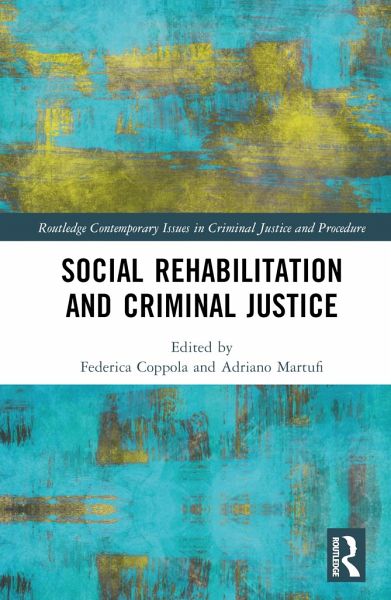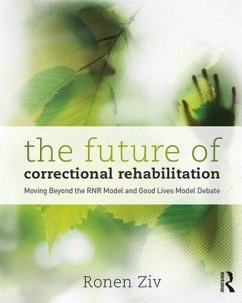
Social Rehabilitation and Criminal Justice
Versandkostenfrei!
Versandfertig in 6-10 Tagen
176,99 €
inkl. MwSt.
Weitere Ausgaben:

PAYBACK Punkte
88 °P sammeln!
This book provides a comprehensive analysis of the current directions in social rehabilitation scholarship and research by bringing together the voices of legal scholars, criminal justice professionals, social scientists, and people directly impacted by criminal justice in a comparative, international, and interdisciplinary fashion.The volume offers a narrative of social rehabilitation in penal contexts through five main domains: theoretical-philosophical, legal-comparative, human rights, social scientific, lived experience, and policy. Collectively, the contributions provide a systematised ex...
This book provides a comprehensive analysis of the current directions in social rehabilitation scholarship and research by bringing together the voices of legal scholars, criminal justice professionals, social scientists, and people directly impacted by criminal justice in a comparative, international, and interdisciplinary fashion.
The volume offers a narrative of social rehabilitation in penal contexts through five main domains: theoretical-philosophical, legal-comparative, human rights, social scientific, lived experience, and policy. Collectively, the contributions provide a systematised examination of the normative facets of social rehabilitation and illustrate avenues for its implementation in criminal justice domains in the full respect of the rights of justice-involved individuals, casting a critical gaze on some the mainstream narratives dominating contemporary penal policy. The overarching legal approach is complemented by a selection of perspectives in social rehabilitation research emanating from social psychology, critical criminology, penology, and neuroscience. These perspectives inform and enrich the legal and jurisprudential debates on the qualification of social rehabilitation as a fundamental goal of justice across domestic and international legal systems.
The book will be of value to academics, practitioners, advocates, and policymakers interested in current research dealing with the problem of punishment and the potential of social rehabilitation to more effectively deal with crime.
The volume offers a narrative of social rehabilitation in penal contexts through five main domains: theoretical-philosophical, legal-comparative, human rights, social scientific, lived experience, and policy. Collectively, the contributions provide a systematised examination of the normative facets of social rehabilitation and illustrate avenues for its implementation in criminal justice domains in the full respect of the rights of justice-involved individuals, casting a critical gaze on some the mainstream narratives dominating contemporary penal policy. The overarching legal approach is complemented by a selection of perspectives in social rehabilitation research emanating from social psychology, critical criminology, penology, and neuroscience. These perspectives inform and enrich the legal and jurisprudential debates on the qualification of social rehabilitation as a fundamental goal of justice across domestic and international legal systems.
The book will be of value to academics, practitioners, advocates, and policymakers interested in current research dealing with the problem of punishment and the potential of social rehabilitation to more effectively deal with crime.














